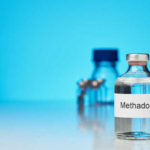Veterans and Substance Abuse: Why Veterans Turn to Drugs and Alcohol
In 2016, there were just a little over 20 million veterans in the US. Coming in at less than 10% of the nation’s population, they’re a minority, but an important one. Not only have they defended our country vehemently, but they also have to live with what they’ve seen for the rest of their lives.
Unfortunately, a sad reality is that veterans and substance abuse is quite a regular occurrence.
So why does this happen? And what can we do to help the veterans in our lives? Read on to find out.
Veterans and Substance Abuse
If you’re a veteran or know a few, then it’s very likely that at least one of you has an issue with substance abuse. But why is drug abuse among veterans so common? Here are a few reasons why.
Post-Traumatic Stree Disorder (PTSD)
Anywhere from 13.5% to 30% of veterans have PTSD. This is a type of psychiatric disorder that occurs when someone goes through something traumatic.
Seeing as war can have some tough events, it shouldn’t come as a surprise that a good number of soldiers develop PTSD as a result. Not only that, but another unfortunate reality is that many female soldiers are victims of sexual assault as well.
Some of the symptoms of PTSD include:
- Hopelessness
- Memory issues
- Concentration issues
- Relationship issues
- Flashbacks
- Aggression
- Insomnia
- Self-destructive behavior
As you can see, the symptoms can be quite difficult to deal with. To try and numb themselves, veterans might turn to drugs and alcohol to self-medicate. For many, seeking help can be next to impossible to try.
Addiction to Prescribed Medications
For those who do seek professional help for PTSD, many veterans are prescribed anxiety medications to help manage their symptoms. Many of them are addictive, even if veterans take them as prescribed and/or needed.
In addition, those who have been injured in combat may be prescribed painkillers and other medications to help manage their pain. As you might already know, many of these medications are highly addictive as well.
Considering many veterans have to take medications such as painkillers, benzodiazepines, sedatives, and other addictive prescription drugs, it’s very easy for them to slip into substance dependence and addiction.
Carryover of Military Life
The military has a huge drinking culture, especially since the use of illicit drugs is frowned upon. Soldiers will get used to the drinking culture and carry that over into their civilian lives after they’re done serving.
When this habit is combined with issues like PTSD, then this can drastically increase a veteran’s dependence on alcohol or even other drugs. For instance, while they wouldn’t have done illicit drugs while in the military, they might turn to them once they’re civilians since they’re easy to get a hold of, not to mention cheaper than things like prescription drugs.
Homelessness
Another sad reality is that while veterans are highly revered in our society, there simply aren’t enough resources for them to utilize. As a result, many of them end up homeless.
While living on the streets, it’s very hard to get the appropriate help for mental health and substance abuse problems. For this reason, many homeless veterans have either mental health issues and/or a dependence on drugs.
Societal Stigmas
Soldiers are seen as brave and stoic people. Because of this, they feel like they aren’t allowed to show any signs of weakness. And mental health issues are often seen as one of these signs.
Sadly, this results in many veterans afraid to seek help, even though there are resources available. They feel like they have to suffer in silence and just buck up, which may drive them to self-medicate even more.
Rehabilitation Can Help
While it may seem quite hopeless whe it comes to veterans and addiction, there is a light at the end of the tunnel. There are many discreet rehabilitation centers around the nation that can help you or a loved one shake addiction and become healthier.
Here are the things that rehab entail.
Detox
To begin the road to recovery, you have to first fully detox from alcohol and drugs. During detox, there can be some very unpleasant withdrawal symptoms, such as:
- Nausea
- Vomiting
- Diarrhea
- Anxiety
- Fever
- Tremors
- Suicidal thoughts
As you can see, these withdrawal symptoms can be highly unpleasant, which may drive you to use again.
For this reason, it’s highly recommended that you seek detox at a professional center, as you’ll be under the care of medical staff who can monitor your progress. In addition, they have the authority to prescribe (non-addictive) prescription medications to make detox a much safer and more comfortable process.
Rehabilitation
Rehabilitation allows veterans to face their issues head-on. This means finding the root cause of their substance abuse issues and finding healthy ways to cope.
In rehab, you’d typically go through individual counseling, group therapy, and even family counseling. In individual counseling, you’ll receive proper treatment for PTSD so you’ll be able to deal with triggers in the future.
For most rehabilitation centers, they offer both inpatient and outpatient treatment.
Consider Rehab Today
Now that you know a bit more about veterans and substance abuse, know that you or your loved one don’t have to feel alone or hopeless. While substance abuse can feel like rock bottom, there’s always hope in the form of detox and rehabilitation.
The journey to sobriety won’t be an easy one, but it’ll certainly feel rewarding once you get on the right path. Not only will you or your loved one feel healthier, but you’ll also repair any broken relationships that might’ve happened.
So if you feel ready to take the next step, get started on finding a detox center near you now.








